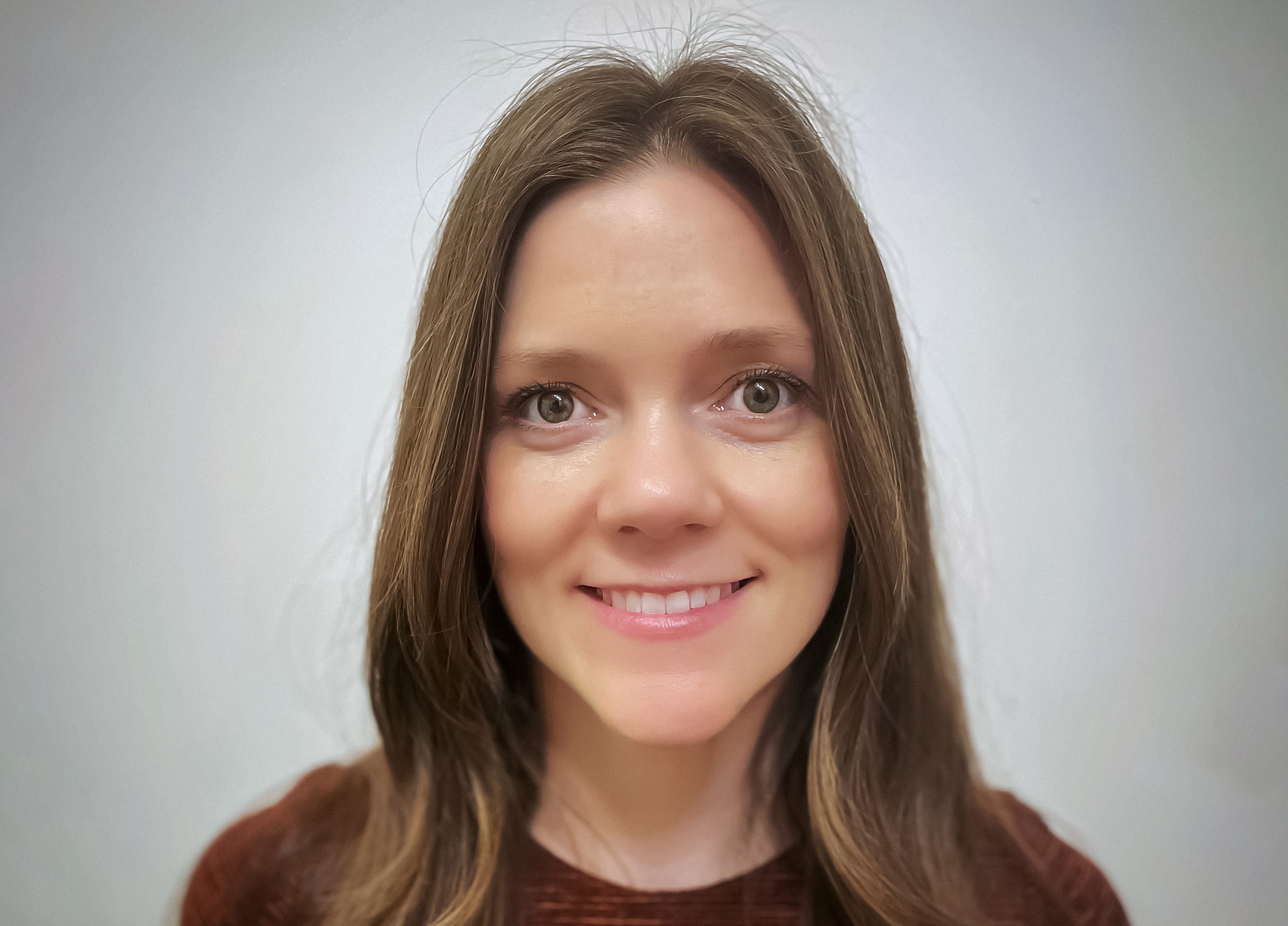Callie Hollander Finds Her Rhythm in Neuroscience Research
From Yoga to the Lab She Explores the Body’s Inner Workings Through Science

From playing the piano at two years old to sound engineering and producing music in college, Callie Hollander, a Ph.D. candidate, has always been fascinated with music. However, it was her journey to study yoga in Bali, Indonesia, which guided her to pursue her doctorate degree in cell biology and anatomy at the New York Medical College (NYMC) Graduate School of Biomedical Sciences.
Currently researching memory and learning in the lab of Patric K. Stanton, Ph.D., professor of cell biology and anatomy and of neurology, the idea of earning a Ph.D. came to Hollander years after graduating with a full scholarship from the University of North Alabama (UNA), earning a bachelor’s in music business. After college, she interned in music distribution and artist development. As the music industry evolved, with record labels shrinking and more artists going independent, Hollander pivoted, transitioning into retail management. During this period of personal transformation, she also began to practice yoga. Over the next several years, she continued to grow and eventually found herself ready for another major shift—this time in her career path.
“Through yoga, I saw an interpersonal connection with myself, my body, and mind,” recalled Hollander. “My anxiety levels were going down and I felt like there was something interesting happening there, something I did not understand yet.”
Hollander set out to find a yoga instructor training program that aligned with her values and allowed her to travel outside of the southern United States, where she had always lived. She discovered a couple in Indonesia who offered an immersive, two-month course that blended the spiritual and philosophical roots of yoga with a deep dive into anatomy and physiology. Committed to this new path, Hollander sold her home in Nashville and traveled more than 10,000 miles across the Pacific Ocean to Bali. She had no idea what to expect but knew that it was time to experience different cultures and a different way of life.
While Hollander spent her mornings doing mediation practice, she spent her afternoons learning about the impact yoga had on the nervous system. "I began to realize—oh, this is my nervous system processing,” she recalled. “This is my mind experiencing what is happening. And those emotions? They’re actual biochemical physical sensations in the body, not just some ‘supernatural occurrence.’ Most people come to yoga and go into the spiritual and philosophical side of the teachings, but I went the other way. By the end of it, I was asking myself: ‘How do I learn as much as I can about this nervous system response?’”
Hollander spent a year traveling, through Singapore, Malaysia, Thailand, Myanmar, Vietnam, Fiji, Australia, and New Zealand. She realized that her next course of action would be to pursue a Ph.D. studying neuroscience and would tell the friends she met around the world her plans to get a doctorate and study neuroscience.
In 2018, Hollander enrolled in a post-baccalaureate program in molecular and cell biology at UNA. During her final semester in 2020, she faced the challenges brought on by the COVID-19 pandemic, including funding uncertainties that affected many research labs. With limited prior experience in bench lab work, she was attracted to the flexibility of the Integrated Ph.D. Program at NYMC, which allows students the opportunity to explore various labs through semester long rotations during the first year of graduate studies, so she chose to accept her offer to this program and began her doctoral studies in August 2020.
Fascinated by the science of learning and memory, Hollander was intrigued by the work of Dr. Stanton, whose research focuses on the cellular mechanisms underlying neuronal plasticity and learning and memory. His lab has researched many different projects throughout the years, including traumatic brain injury, migraine headaches, strokes and neurodegenerative diseases, including Alzheimer’s disease. In Dr. Stanton’s lab, in collaboration with former NYMC School of Medicine Dean Jerry L. Nadler, M.D., MACP, FAHA, FACE, Hollander and her colleagues are investigating the inflammatory transcription factor STAT4, which is upregulated in diabetes associated with a high-fat, high-cholesterol diet, to examine its effects on the brain. The study, “Myeloid cell deficiency of the inflammatory transcription factor Stat4 protects long-term synaptic plasticity from the effects of a high-fat, high-cholesterol diet,” was published in Nature.
Looking ahead, Hollander envisions a future in industry and spearheading major research projects. “I’m interested in this idea of novel therapies and therapeutics being allowed to be brought forward to society and being a part of that side of research,” she said. “I want to be a part of the process of bringing what’s done in the lab to people who need it the most.”

